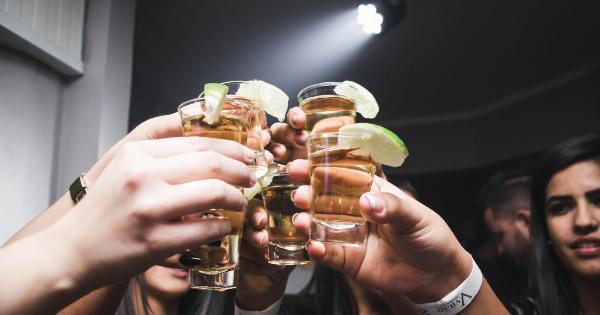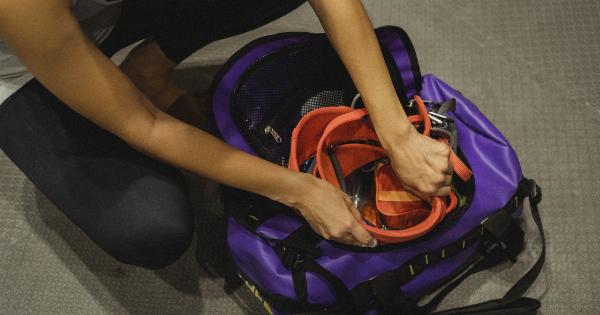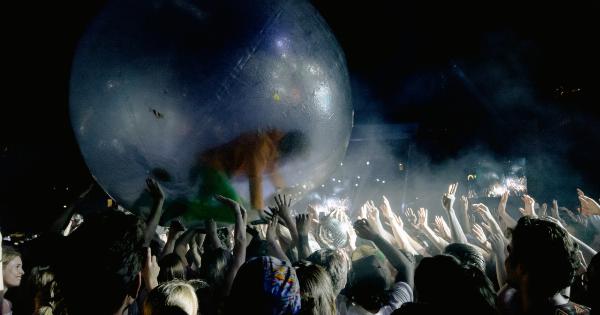Drinking can be a fun and enjoyable experience, but it’s important to pace yourself to avoid any negative consequences.
Whether you’ve just turned 21 or you’re a seasoned social drinker, knowing how to pace yourself while drinking can make all the difference in ensuring you have a good time without getting too intoxicated. Below are some tips that can help you pace yourself while drinking.
1. Start Slowly
The key to pacing yourself while drinking is to start slowly. Don’t jump straight into the hard stuff, especially if you’re not used to drinking. Instead, start with something light like beer or wine and gradually work your way up.
This will give your body time to adjust and help you avoid getting too drunk too quickly.
2. Alternate Between Alcoholic and Non-Alcoholic Drinks
Another way to pace yourself while drinking is to alternate between alcoholic and non-alcoholic drinks. This can help prevent you from getting drunk too quickly and also keep you hydrated.
For example, you can drink a glass of water or a soda in between every alcoholic drink.
3. Use a Smaller Glass
Using a smaller glass can also help you pace yourself while drinking. It’s easy to lose track of how much you’ve had when you’re drinking from a large mug or glass.
Using a smaller glass will help you keep an eye on how much you’re drinking and avoid overdoing it.
4. Eat Before You Drink
Eating before you drink can also help you pace yourself. Food will slow down the absorption of alcohol into your system, making it less likely that you’ll get drunk too quickly.
Make sure to eat a hearty meal before you start drinking, and snack on something throughout the night to keep your blood sugar levels stable.
5. Drink Water Throughout the Night
Drinking water throughout the night is important to keep you hydrated and help you pace yourself. Alcohol is a diuretic, which means it can dehydrate you. Drinking water can help you feel fuller and prevent you from drinking too much alcohol too quickly.
6. Don’t Drink on an Empty Stomach
Drinking on an empty stomach is a recipe for disaster. When you drink on an empty stomach, the alcohol is absorbed into your bloodstream much more quickly than if you had eaten something first.
This can cause you to get drunk much faster than you intended and make it difficult to pace yourself throughout the night.
7. Monitor Your Drinking
One of the most important things you can do to pace yourself while drinking is to monitor your drinking. Keep an eye on how much you’re drinking and how quickly you’re drinking it.
If you feel like you’re getting too drunk too quickly, slow down or stop altogether. Pay attention to how you’re feeling and don’t be afraid to take a break if needed.
8. Don’t Let Peer Pressure Get to You
Peer pressure can be a big factor in encouraging people to drink too much too quickly. Although it can be hard to resist, it’s important to remember that you don’t have to drink just because everyone else is.
Stay true to yourself and your own limits, and don’t let peer pressure get to you.
9. Know Your Limits
Finally, it’s important to know your limits when it comes to drinking. Everyone is different, and what works for one person may not work for another. Know how much alcohol you can handle and pace yourself accordingly.
There’s no shame in admitting that you can’t handle as much as someone else.
Conclusion
Pacing yourself while drinking can be challenging, but it’s essential to ensure that you have a good time without any negative consequences.
By starting slowly, alternating between alcoholic and non-alcoholic drinks, using a smaller glass, eating before you drink, drinking water throughout the night, not drinking on an empty stomach, monitoring your drinking, not letting peer pressure get to you, and knowing your limits, you’ll be well on your way to a fun and safe night out.































